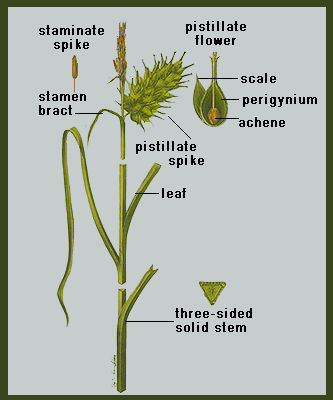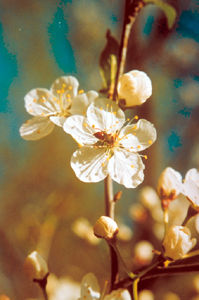Browse "Things"
-
Article
Sedge
Sedge is a grasslike plant common throughout temperate and cold regions. The genus name, Carex (family Cyperaceae), is probably derived from keiro, referring to the sharp leaf margins.
"https://d2ttikhf7xbzbs.cloudfront.net/media/media/e54d9ac1-e557-4493-aa21-0155fa62dd38.jpg" // resources/views/front/categories/view.blade.php
https://d2ttikhf7xbzbs.cloudfront.net/media/media/e54d9ac1-e557-4493-aa21-0155fa62dd38.jpg
-
Article
Sedimentary Rock
Only about 5% of the Earth's crust is composed of sedimentary rocks, but they cover 70-75% of the exposed surface and contain many economically important minerals, as well as coal and petroleum.
"https://d2ttikhf7xbzbs.cloudfront.net/media/media/233c4490-07ce-414e-b2d5-e30602befc75.jpg" // resources/views/front/categories/view.blade.php
https://d2ttikhf7xbzbs.cloudfront.net/media/media/233c4490-07ce-414e-b2d5-e30602befc75.jpg
-
Article
Seed Plants
The common feature uniting seed plants is the "seed habit," a unique method of sexual reproduction. In all vascular plants, the conspicuous plant is a spore producer (sporophyte) that alternates, in the life cycle, with a sexual phase (gametophyte).
"https://d2ttikhf7xbzbs.cloudfront.net/media/media/bdc4d290-63b3-44ee-a1c0-cdd4bd1288a8.jpg" // resources/views/front/categories/view.blade.php
https://d2ttikhf7xbzbs.cloudfront.net/media/media/bdc4d290-63b3-44ee-a1c0-cdd4bd1288a8.jpg
-
Macleans
Segal Enters Tory Leadership Race
The backroom boy is in. So is the dark horse. As expected, Hugh Segal, the consummate Tory fixer, announced his run for the federal party leadership last week, followed in short order by Brian Pallister, the former Manitoba cabinet minister.This article was originally published in Maclean's Magazine on June 22, 1998
"https://development.thecanadianencyclopedia.ca/images/tce_placeholder.jpg?v=e9dca980c9bdb3aa11e832e7ea94f5d9" // resources/views/front/categories/view.blade.php
https://development.thecanadianencyclopedia.ca/images/tce_placeholder.jpg?v=e9dca980c9bdb3aa11e832e7ea94f5d9
-
Article
Sei Whale
The sei whale (Balaenoptera borealis) is the third-largest baleen whale. These whales are found in Canada's Atlantic and Pacific oceans. Two subspecies of sei whales are recognized: a northern subspecies (Balaenoptera borealis borealis) and a southern subspecies (Balaenoptera borealis schlegelii). The sei whale is one of the fastest whales, reaching up to 55 km/h over short distances.
"https://d2ttikhf7xbzbs.cloudfront.net/seiwhale/Sei-Whale.jpg" // resources/views/front/categories/view.blade.php
https://d2ttikhf7xbzbs.cloudfront.net/seiwhale/Sei-Whale.jpg
-
Article
Seigneurial System
The seigneurial system was an institutional form of land distribution established in New France in 1627 and officially abolished in 1854. In New France, 80 per cent of the population lived in rural areas governed by this system of land distribution and occupation.
"https://d2ttikhf7xbzbs.cloudfront.net/media/media/03b970d8-8c04-4534-938f-0cf5738ec6c3.jpg" // resources/views/front/categories/view.blade.php
https://d2ttikhf7xbzbs.cloudfront.net/media/media/03b970d8-8c04-4534-938f-0cf5738ec6c3.jpg
-
Article
Semaines sociales du Canada
Semaines sociales du Canada, annual conferences started in 1920 by Jesuit Fr Joseph-Papin ARCHAMBAULT and organizers from the École sociale populaire. The goal was to train an elite who would spread a Christian spirit and the church's SOCIAL DOCTRINE throughout Québec's mores, institutions and laws.
"https://development.thecanadianencyclopedia.ca/images/tce_placeholder.jpg?v=e9dca980c9bdb3aa11e832e7ea94f5d9" // resources/views/front/categories/view.blade.php
https://development.thecanadianencyclopedia.ca/images/tce_placeholder.jpg?v=e9dca980c9bdb3aa11e832e7ea94f5d9
-
Article
Semiconductors and Transistors
Semiconductors, often called integrated circuits, chips or microchips, are essential components of all computers and are used in a wide variety of other devices including telecommunications equipment, consumer electronics, home appliances, and even automobiles.
"https://development.thecanadianencyclopedia.ca/images/tce_placeholder.jpg?v=e9dca980c9bdb3aa11e832e7ea94f5d9" // resources/views/front/categories/view.blade.php
https://development.thecanadianencyclopedia.ca/images/tce_placeholder.jpg?v=e9dca980c9bdb3aa11e832e7ea94f5d9
-
Article
Séminaire de Québec
Séminaire de Québec, an educational institution consisting of the Grand Séminaire and the Petit Séminaire. The former, fd 26 Mar 1663 by Mgr François de LAVAL, was to train priests and guarantee parish ministries and evangelization throughout the diocese. In 1665 it was affiliated with the Séminaire des Missions Étrangères de Paris.
"https://d2ttikhf7xbzbs.cloudfront.net/media/media/8b6b148e-044b-4ca9-a70a-2080d5773590.jpg" // resources/views/front/categories/view.blade.php
https://d2ttikhf7xbzbs.cloudfront.net/media/media/8b6b148e-044b-4ca9-a70a-2080d5773590.jpg
-
Article
Senate of Canada
The Senate is the Upper House of Canada’s Parliament. Its 105 members are appointed and hold their seats until age 75. The Senate’s purpose is to consider and revise legislation; investigate national issues; and most crucially according to the Constitution, give the regions of Canada an equal voice in Parliament. The Senate is a controversial institution. It has long been regarded by many Canadians as a place of unfair patronage and privilege. An unresolved debate continues about whether it should be reformed into an elected body accountable to the voters, or abolished.
"https://d2ttikhf7xbzbs.cloudfront.net/media/media/c19d86a2-25d9-49fa-b11e-f7544e8c71f2.jpg" // resources/views/front/categories/view.blade.php
https://d2ttikhf7xbzbs.cloudfront.net/media/media/c19d86a2-25d9-49fa-b11e-f7544e8c71f2.jpg
-
Editorial
Senate: Canada's Best Think Tank
The following article is an editorial written by The Canadian Encyclopedia staff. Editorials are not usually updated.
"https://d2ttikhf7xbzbs.cloudfront.net/media/media/c19d86a2-25d9-49fa-b11e-f7544e8c71f2.jpg" // resources/views/front/categories/view.blade.php
https://d2ttikhf7xbzbs.cloudfront.net/media/media/c19d86a2-25d9-49fa-b11e-f7544e8c71f2.jpg
-
Article
Sentencing Hate Crimes
For many offences, the Criminal Code prescribes only maximum sentences, giving judges wide latitude to determine fit penalties. Judges consider a broad array of aggravating and mitigating factors in sentencing. One aggravating factor is the motivation of racial or group hatred for an offence.
"https://development.thecanadianencyclopedia.ca/images/tce_placeholder.jpg?v=e9dca980c9bdb3aa11e832e7ea94f5d9" // resources/views/front/categories/view.blade.php
https://development.thecanadianencyclopedia.ca/images/tce_placeholder.jpg?v=e9dca980c9bdb3aa11e832e7ea94f5d9
-
Article
Separate School
In both the US and Canada parents are free to choose to send their children to the state-run public SCHOOL SYSTEM or to a variety of private fee-paying schools.
"https://development.thecanadianencyclopedia.ca/images/tce_placeholder.jpg?v=e9dca980c9bdb3aa11e832e7ea94f5d9" // resources/views/front/categories/view.blade.php
https://development.thecanadianencyclopedia.ca/images/tce_placeholder.jpg?v=e9dca980c9bdb3aa11e832e7ea94f5d9
-
Macleans
Septuplets and Medical Ethics
The ultrasound showed seven babies. Septuplets, the doctor told the mother, and the odds against their survival were "astronomical." She could, of course, choose to abort some or all of the seven fetuses.This article was originally published in Maclean's Magazine on December 1, 1997
"https://development.thecanadianencyclopedia.ca/images/tce_placeholder.jpg?v=e9dca980c9bdb3aa11e832e7ea94f5d9" // resources/views/front/categories/view.blade.php
https://development.thecanadianencyclopedia.ca/images/tce_placeholder.jpg?v=e9dca980c9bdb3aa11e832e7ea94f5d9
-
Article
Serbian Music in Canada
Immigration to Canada by the peoples of this eastern portion of modern Yugoslavia began in significant numbers after World War II, and by 1986 some 12,970 Serbian-Canadians lived and worked in the industrial areas of southern Ontario. Others lived in Ottawa, Montreal, and Vancouver.
"https://development.thecanadianencyclopedia.ca/images/tce_placeholder.jpg?v=e9dca980c9bdb3aa11e832e7ea94f5d9" // resources/views/front/categories/view.blade.php
https://development.thecanadianencyclopedia.ca/images/tce_placeholder.jpg?v=e9dca980c9bdb3aa11e832e7ea94f5d9
